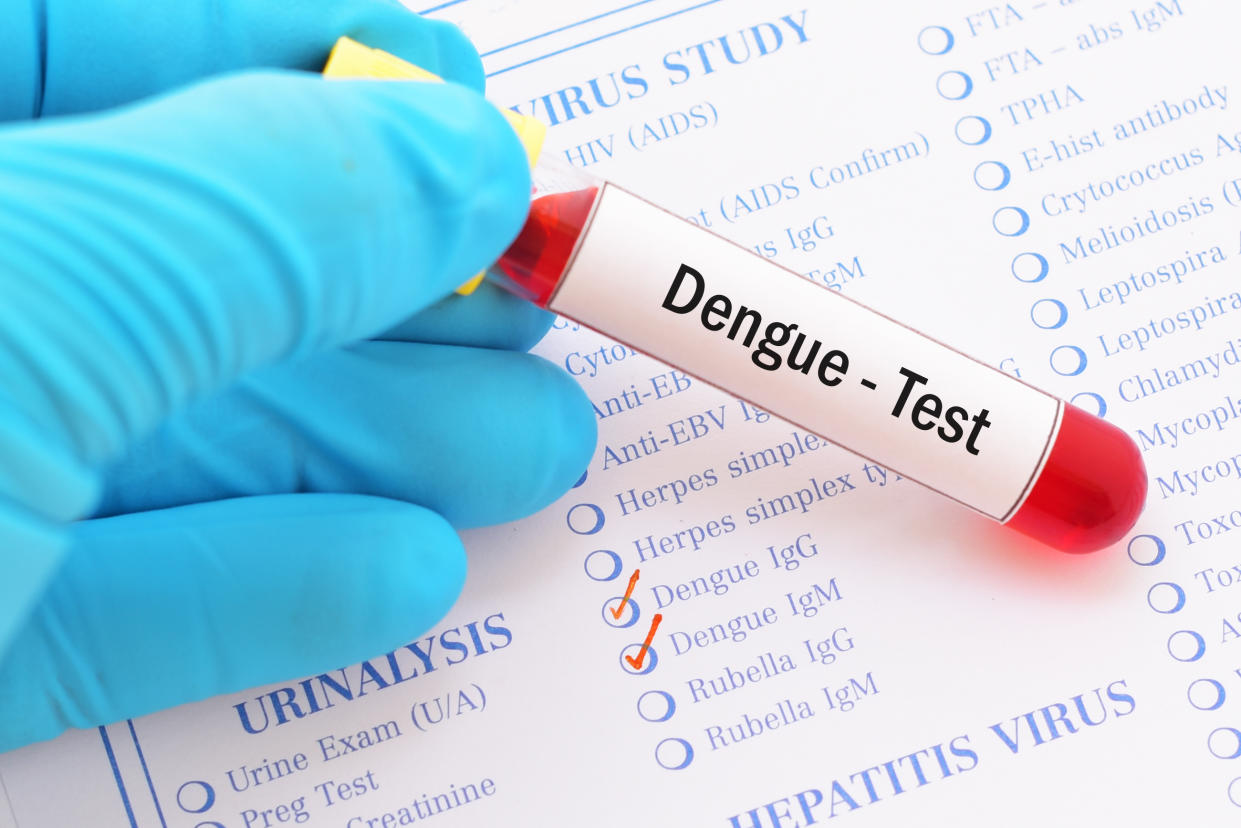Social distancing leading to surge in dengue cases in Thailand, study suggests

Coronavirus restrictions have likely triggered a surge in dengue cases in Thailand, research suggests.
Dengue is a viral infection spread by mosquitoes in certain parts of the world, with no set treatment or widely available vaccine.
Most cases are mild, with patients recovering within a week. In severe incidences, however, dengue can be life-threatening.
Amid the coronavirus pandemic, officials around the world have introduced measures to ensure social distancing is maintained, including encouraging employees to work from home where possible.
Read more: England's daily coronavirus death toll may reach up to 422 on 5 November
The risk of being bitten by a dengue-carrying mosquito is typically higher at home, however, with scientists from the University of Singapore estimating an additional 4.32 cases are occurring every month per 100,000 people in Thailand.
When extrapolated out across the whole country, the scientists expect more than 2,000 extra dengue cases are arising a month.

Around 105 million dengue infections are thought to occur every year across 120 countries, three quarters (75%) of which take place in Southeast Asia and the Western Pacific region. Dengue is not native to the UK or US.
Symptoms typically include a fever, severe headache, eye pain, muscle and joint discomfort, nausea, vomiting, a rash, abdominal pain and loss of appetite.
Most people fight off the infection naturally, while resting and staying hydrated.
Read more: Long COVID may cause skin symptoms
In serious cases, a patient may endure severe abdominal pain, bleeding beneath the skin or breathlessness.
Repeatedly vomiting blood, developing a weak but fast pulse, losing consciousness and even death can also occur.
Read more: Singapore fights dengue with more mosquitoes
Amid the pandemic, officials in Southeast Asia and the Western Pacific region have closed workplaces, banned mass gatherings and, at times, implemented a total lockdown.
To estimate how reduced movement is affecting dengue transmission, the Singapore scientists analysed cases of the viral infection in Thailand, Singapore and Malaysia via national surveillance data.
Results – published in the PLOS Neglected Tropical Diseases journal – suggest social distancing is leading to a surge of dengue cases in Thailand, with an additional 170 incidences a month in Bangkok alone.
Across the country, the scientists estimate an extra 2,008 cases are occurring per month.
A heightened dengue risk was not found for Singapore or Malaysia.
Dengue-carrying mosquitoes often breed at water sources within the home.
“Although it is possible for dengue infections to occur in workplaces, it was found in one study 60% of dengue cases live less than 200m [656ft] apart from the same transmission chain, revealing residential areas are a focal point of transmission,” wrote the scientists.
“Additionally, an increased frequency of movement within urban and predominantly residential neighbourhoods was found to increase the risk of dengue infection.”
Read more: Coronavirus patients over 65 in the UK can test drugs at home
“Differences in residential structures” may explain why only Thailand appears to have been affected.
The risk of infection is said to be higher among low-rise buildings. “Denser drainage networks” can also create suitable breeding grounds for the mosquitoes.
“Across country disparities in social distancing policy effects on reported dengue cases are reasoned to be driven by differences in workplace-residence structure, with an increase in transmission risk of arboviruses [transmitted by animals like mosquitoes] from social distancing primarily through heightened exposure to vectors in elevated time spent at residences,” wrote the scientists.
“[This demonstrates] the need to understand the effects of location on dengue transmission risk under novel population mixing conditions such as those under social distancing policies.”
Watch: Dengue fever taking hold in Yemen




